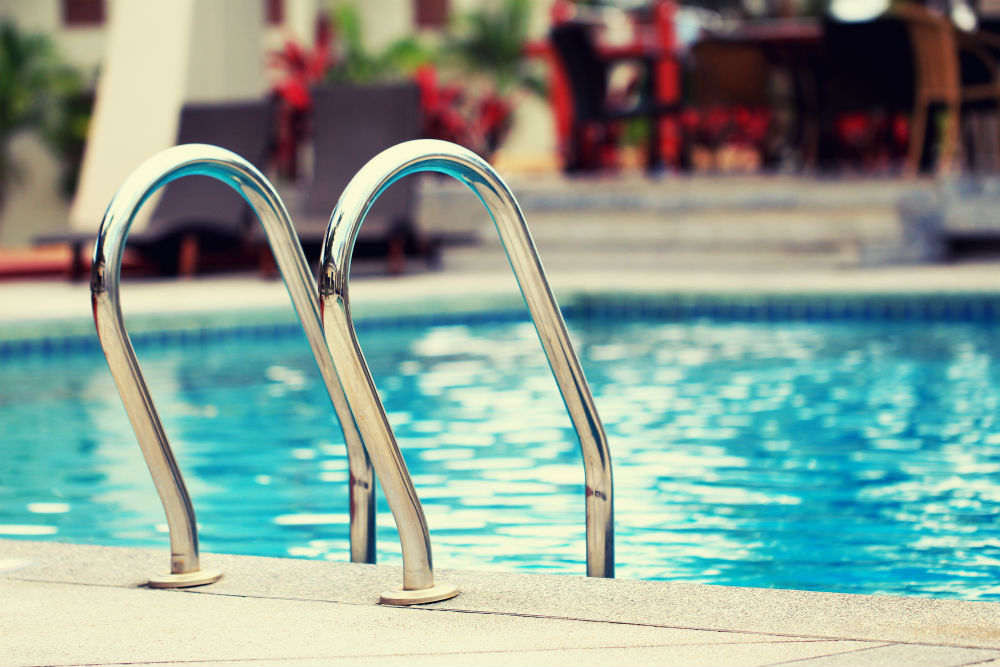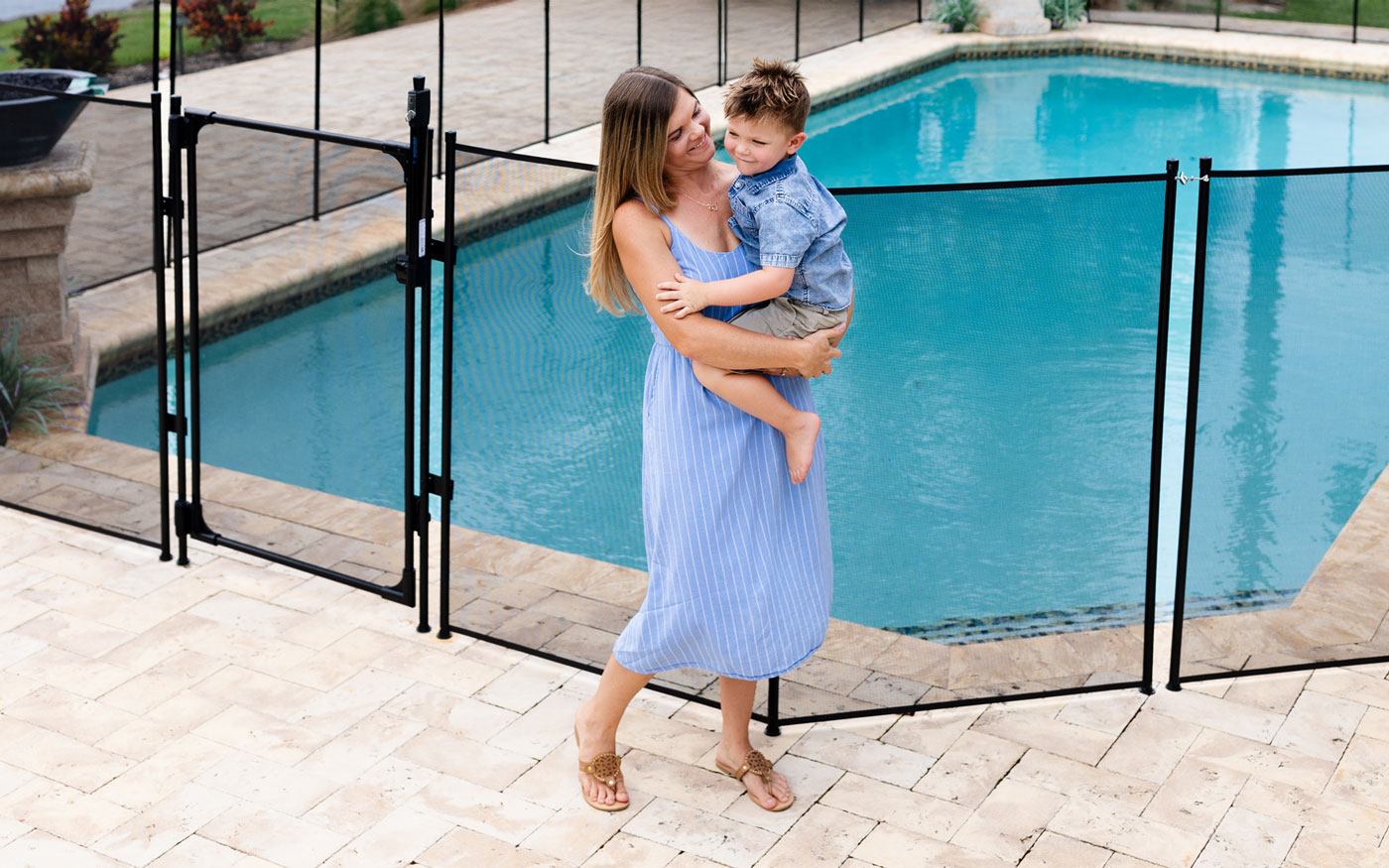There are many concerns one might have while going through the pool installation process, and this is especially true for parents. Even if you want your pool to be the beautiful focal point of your backyard, it’s quite likely you’re willing to sacrifice aesthetic features if it means the pool will be safer for you and your family. Additionally you should consider maintenance, as well as what you’ll have to do to keep your pool looking and running great for as long as possible. These concerns regarding your pool’s safety, maintenance, and longevity, are a normal part of the pool installation process, and a decision regarding whether to get a saltwater or chlorine pool is going to have a significant impact on all three of these facets.
This article is intended for individuals who plan to install a new pool or for those who want to get a pool remodeling project done in the future. The main focus of the following sections are to highlight the differences and similarities between the effects of saltwater and chlorine on your pool. There are tidbits of information specifically intended for current and soon-to-be plastered pool owners interspersed throughout each of the subsequent sections.
Chlorine vs Saltwater Pools: Safety
When talking about the differences and similarities between saltwater and chlorine, it’s good to begin by dismissing the idea that saltwater pools are chlorine-free. The process works like this: saltwater pools utilize what is known as a chlorine generator, and this machine, through the use of titanium plates, electrolyzes salt in the pool water to produce liquid chlorine.
Pool owners have traditionally used chlorine for cleaning and sanitation because it kills bacteria and algae. Chlorine is typically added to pool water through tablets that dissolve in a floating dispenser or external feeder; these tablets usually last a week or two.
While it’s true that chlorine is an irreplaceable component of every clean and sanitized pool, too much of it can turn your watery oasis into a poisonous bath, that if swam in, could cause you a lot of health problems. If you suddenly notice skin irritations or burning sensations a short time after entering the pool—or if you start to feel itchiness or discomfort around your nose or eyes soon after being submerged under water—then you should quickly get out of the water; such symptoms are indicative of a pool that has been treated with too much chlorine.
If you notice the following symptoms a short time after exiting the pool, you should consult a medical professional immediately:
- A burning sensation in your eyes, throat, or on your skin
- A dull chest pain
- A sudden feeling of nausea that may or may not cause vomiting
- Difficulty breathing
- Skin redness
Excessive levels of chlorine are harmful to humans, yet (as far as safety is concerned) they have virtually no effect on the materials used to construct your pool; which is to say, for example, you won’t be encountering deteriorated pieces of plaster or other debris because you chose saltwater over chlorine-treated water, or vice versa. This point will be elaborated on in the following sections.
Chlorine vs Saltwater Pools: Maintenance
Although saltwater pools are for all intensive purposes chlorine pools, there are several distinctions that lead individuals to prefer one over the other—take distinctions regarding maintenance, for example.
As discussed earlier, saltwater pools receive chlorine from a chlorine generator. These devices are ideal for individuals who don’t like swimming in pools that have been treated with chlorine in the traditional ways, however they do require routine maintenance in order to work properly. For one, stabilizer must be added separately when using a chlorine generator. (Chlorine tablets have stabilizer in them.) Also, chlorine production levels must be monitored and adjusted, and this can be done using a dial on the generator’s control panel. Finding the right balance of salt and stabilizer is something that takes time; every pool is different. With that being said, it’s recommended to test your pool’s water bi-weekly.
Many pool owners like chlorine tablets because they are an easy and effective way to maintain proper levels of chlorine and stabilizer. Individuals who use these, however, must still check stabilizer levels regularly, for the stabilizer in chlorine tablets can build-up over time and thus require you to drain a portion of your pool. High levels of stabilizer will not only nullify the desired effects of chlorine, they may also lead to pool damage if left untreated.
Those plastered-pool owners concerned about maintenance can go with either a chlorine generator (for saltwater pools) or traditional chlorine tablets because both cleaning methods are effective and safe to use in a plaster-finished pool. Individuals who decide to go with a saltwater pool, however, must make sure that the salt is brushed completely from the walls of the pool after it is added to the water, for undissolved salt could discolor your pool’s plastering.
Chlorine vs Saltwater Pools: Longevity
A pool is an expensive investment; and like all expensive investments, you’re going to want to make it last for as long as possible. Plastered pools have a lifespan between seven and 10 years depending on care and weather, and this is true whether you fill your pool with saltwater or use chlorine tablets to clean it.
For those individuals who have stones or concrete around their pool, saltwater may not be ideal because of its corrosive properties. Additionally, and as noted above, saltwater pools must be brushed routinely in order to prevent discoloration or damage. Lastly, if you notice any holes or cracks in your pool’s plaster finish, applying a sealant designed for saltwater pools is a necessity.
So which should you go with? If your main concern is about your pool’s plaster finish, you can rest easy knowing, that whether you choose to go with saltwater or chlorine, your pool will not be marred or damaged. Saltwater pools do require a little bit more maintenance and care, but owners of these pools say such requirements are totally offset by the benefits associated with saltwater pools.
If you are interested in learning more about secure, sturdy pool fences, contact Protect-A-Child Pool Fence. Speak to one of our staff who can educate you about the importance of having a pool fence installed and about the products we carry. You’ll see why so many people rely on Protect-A-Child Pool Fence to keep their pool safe. If you are interested in swimming pool remodeling and renovation, check out Authentic Plaster & Tile based in the Dallas and greater Houston, TX area.



